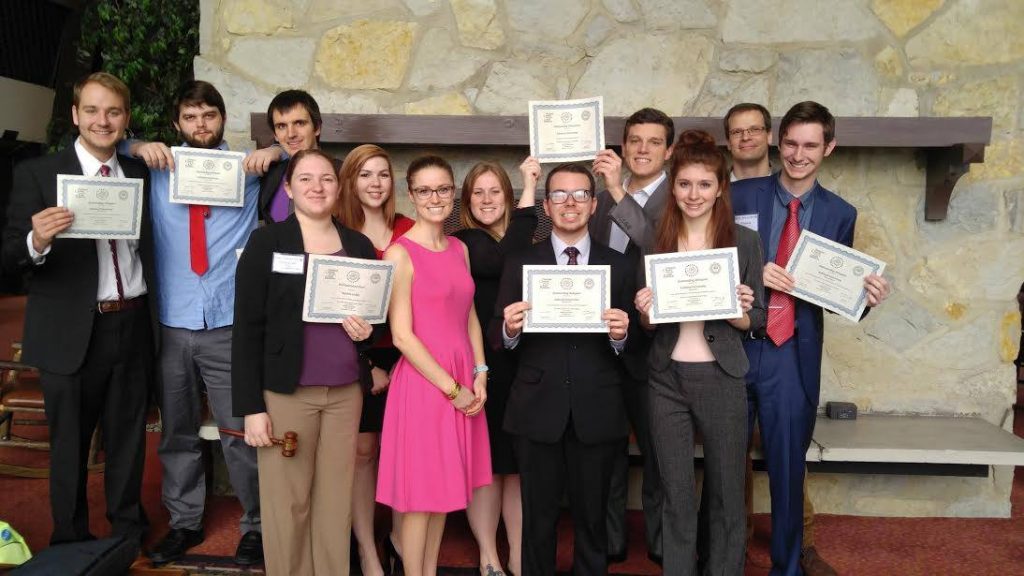Ashbrook Scholars Place First at Model Arab League
December 24, 2020

During the weekend of February 13, 11 Ashbrook Scholars made the journey to Oxford, Ohio to participate in the Ohio Valley Regional Model Arab League. Model Arab League functions much like Model U.N., where each participating team is assigned a country to represent. The teams then each break off into separate councils with two to three members representing each delegation. Each of the councils is focused on a particular issue such as economic affairs or Arab social affairs. While in each council, members are tasked with writing and passing legislation that favors their delegation’s particular goals. Students are not allowed to attend the conference with any pre-written legislation, only the facts that they have gathered about their particular country. Out of the 18 delegations, Ashland’s delegation tied for first with Wright State University with seven Ashbrook Scholars winning outstanding delegate awards. Other notable universities in attendance were Miami University (OH), John Carroll, Indiana University, and Ohio State University.
This is Professor Rene Paddags’ fifth year taking students to the competition. When asked about his expectations going in he said, “There was little expectation going in. We placed second last year and have lost some really good people since then. On top of that, six of the eleven students going, this was their first time going, and so I just hoped that it would be a good learning experience for them.” Professor Paddags also noted, “It’s not always a matter of having good students. I’ve had many good students go before in the past who did not win anything.”

Ashbrook Scholars Josh Frey and Tyler McQueen, who served on the Council of Palestinian Affairs, described how their education at Ashbrook was instrumental in the overall success of the delegation. Frey said, “On the first day we were all asked to introduce ourselves in our committee and all the other students said that they majored in International Relations with minors in Arabic, and on top of that, many of them took specific classes geared toward Model Arab League, so it felt a little weird saying that we were all Political Science and History majors and that this was more a hobby for us.” For Ashbrook Scholars, the fact that they study primary sources and have small class sizes with Socratic discussion actually provides a leg up against other schools. Professor Paddags explains that this form of education “allows individuals to understand larger principles, which in Model Arab League is what builds consensus.” The conversational style of Ashbrook classrooms also allows students to have ample practice in distilling these principles into eloquent speech in real time. McQueen noted that even though this was his first time attending Model Arab League “I initially felt nervous, but once we began deliberations I felt as if I was back in class having discussion with my classmates.” Professor Paddags hopes to continue this success next year. “I believe each year we go, the more we learn and the more we are able to pass on to new students.”

